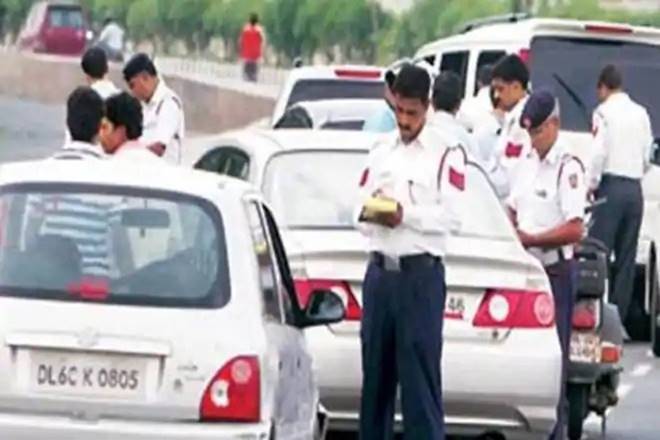The new Motor Vehicles Act laws that came into effect from September 1, 2019 are draconian in nature, to say the least. The automobile industry is in the midst of a crisis, and the new law may be a severe deterrent to its progress. While, some provisions of the law like enhancement of compensation for road victims, protecting good samaritans, fixing responsibility of contractors and road safety boards are in public interest, but many other provisions are quite cumbersome. Why a fine of Rs 100 to Rs 500 has to be increased ten-fold? The rationale has neither been explained nor have the social conditions been taken into account.
The new law has peculiar provisions like penalizing guardians of juveniles and even putting them in jail, cancellation of registration and suspension of driving licence. These are not only superfluous but also against the basic concept of empowering citizens. These apart, it would mostly be used as coercive extortive tactics by the law-enforcement agencies. Instead of solving the problem, it adds to it.
Even today all over the country, millions of impounded vehicles are parked at every police station. These have become junks. Neither the owner is prepared to take these back nor can authorities dispose it off being case properties. These are tremendous wastage of wealth. The law has not respected the concept that a car is a private property and the state cannot on any ground except severe criminal culpability impound it. Moreover impounding of vehicles only compounds the problem. Unnecessary provisions need to be scrapped.
Then levying fines for over speeding have been increased to Rs 1000 to Rs 2000. It is too heavy. Most drivers are fined for driving 2 to 4 km above the 50 km limit. This should better be given up as in normal circumstances even a speed of 80 km is safe. It has not taken into account that modern vehicles zoom to 70/80 km even without pressing the accelerator. Rash driving is a different issue. It entails a fine of Rs 5000. But would that stop it? It has been observed that rash drivers often skip notice and not prosecuted. But a sober one crossing the limit by a km is penalized. Jumping a signal costs Rs 5000.
Another problem is with the insurance. As per law it is already a compulsion. The new provisions have not taken into account that insurance charges have been increased manifold. Higher the charges higher would be default. The rates must be affordable and the law must ensure it.
Overall, the basic tenet of the law is not adhered to while drafting and enacting this law. Mere inducing fear among people by imposition of severe penalties is not a solution. It does not reduce incidence of violation but empowers the enforcers to coerce and extort. The law is apparently a creation of such people.
While enacting this kind of law one forgets the adage that more stringent a law more is the corruption. The powerful are not subjected to law. They skip with their clout. Others skip it if they can grease the palms. But could any lawmaker tell the nation how many have the capacity to pay a fine of Rs 10,000 or more?
Entire effort seems to be revenue realization for an administration that is crying hoarse of its increasing expenses and shortfall in revenue. The practice is to extort the maximum from the common man even to his ruin. This is a prescription for disaster.
The country forgets that one improper environmental dictum ushered by the National Green Tribunals of junking ten-year-old working vehicles is playing havoc. The NGT’s quixotic order has put a brake on car sales, new and old. Many had alleged that the NGT had issued such orders to boost car sales. It is also an example of NGT’s concern for the environment! It does not apparently know that manufacturing a new car is more polluting than the one in use. The US and the West encourages buying one-year old cars and pushes resale as a new car pollutes more and allows these to ply for 40 years. The resale industry is in jeopardy here. Since resale is difficult, new car sales are affected. The reduced demand is affecting the automobile sector. Sales have come down drastically by over 30 percent or more. The new MV Act would add to the problem.
The new law seems to create more problems than solving it. The law that was aimed at weeding out corruption and improving road safety is likely to do the contrary. The Yamuna-type expressways are badly designed where tyre bursts are common due to faulty grid-marks. The loops are also inappropriate. But instead of the road operator, drivers are being penalized.
Let the nation and the lawmakers rethink. It calls for immediate review of the law. Like the Delhi rent control act that was passed over decades ago in a jiffy, it needs reconsideration. The new law needs to be sent back to the standing committee for detailed review. It should also follow a public debate. The need is for a simpler law imposing more responsibility and least fear. Such laws should not be designed for revenue generation.

